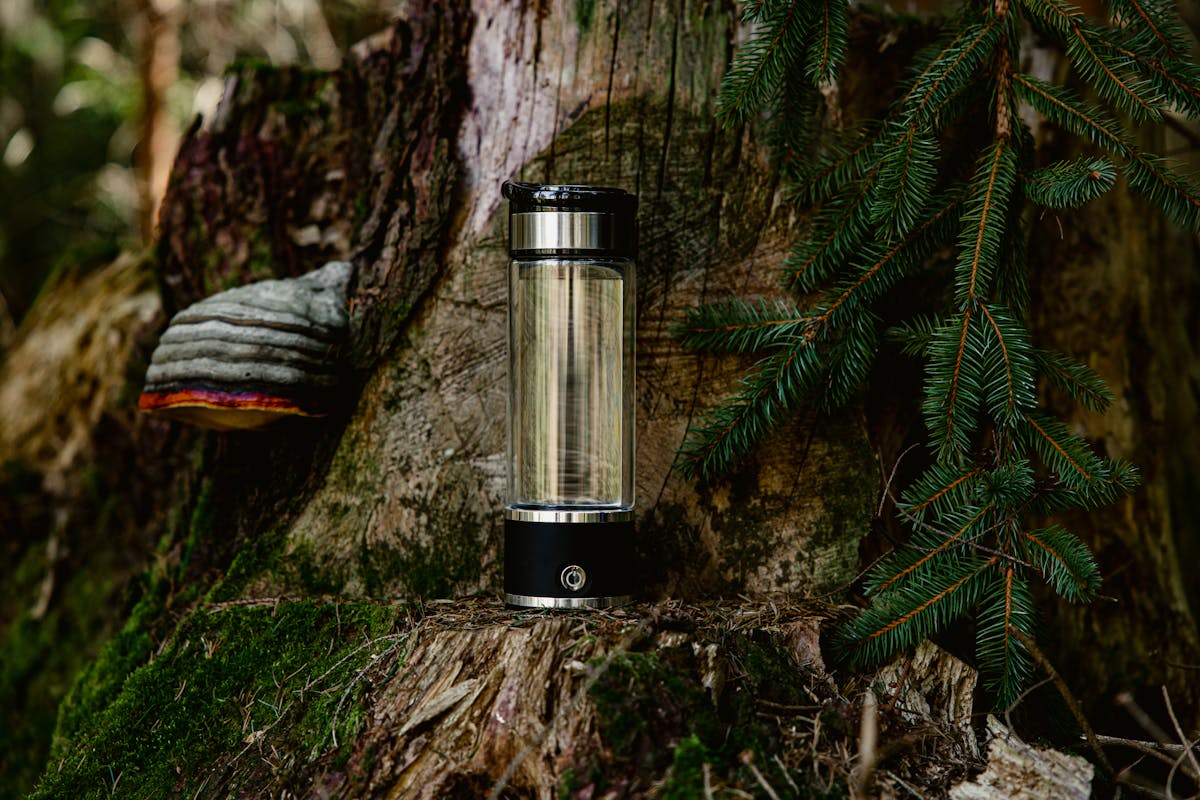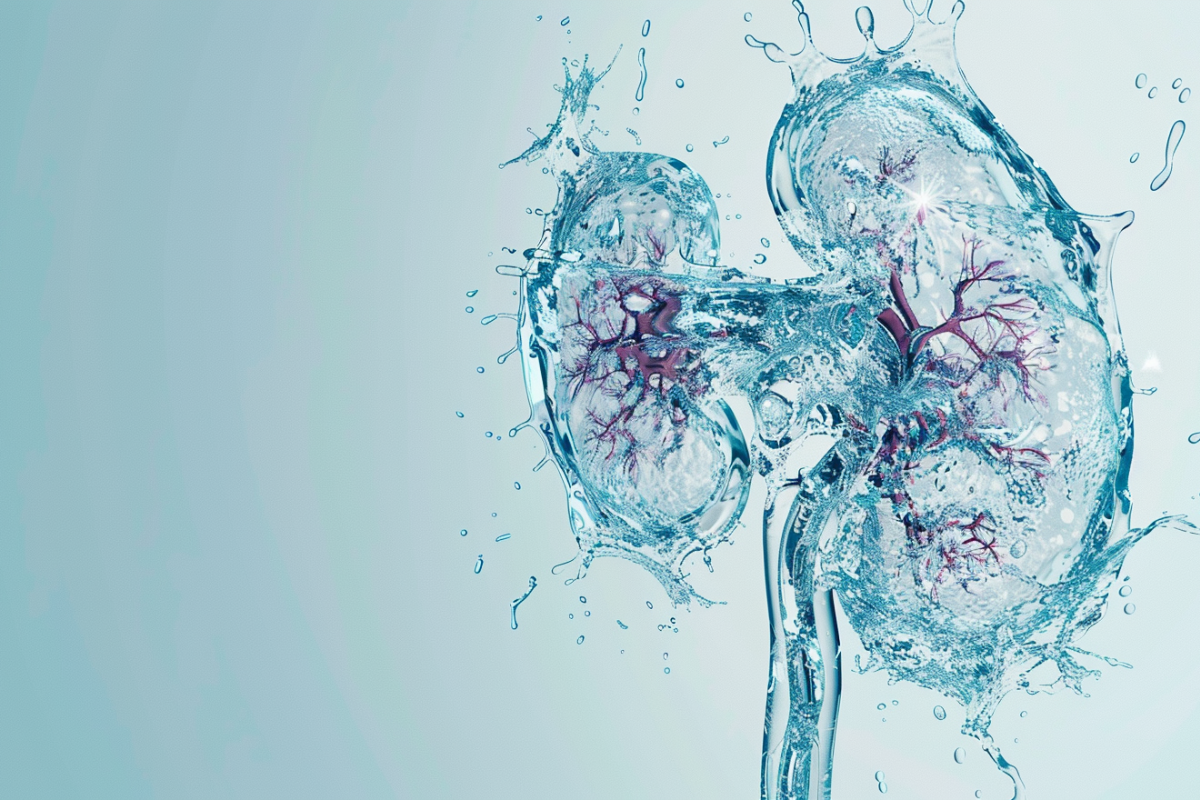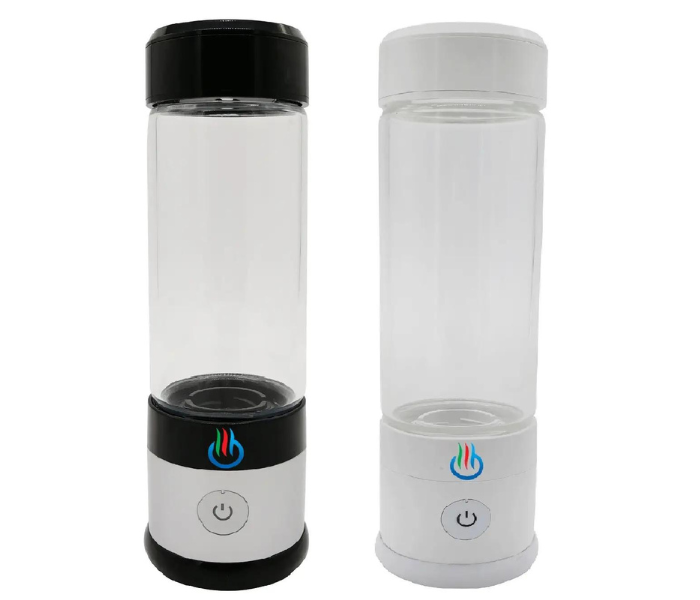Is hydrogen water good for your kidneys?

TL;DR: Is hydrogen water good for your kidneys?
Hydrogen water may help protect your kidneys by reducing oxidative stress and inflammation. While early studies show promise, especially for chronic kidney disease and medication-related damage, more human trials are needed. It should be used as a supportive wellness tool, not a medical treatment.
Kidneys quietly work around the clock to filter toxins from the blood and balance fluids.
With rising rates of kidney disease and growing interest in functional hydration, many people are asking whether hydrogen water can support renal health.
This article explores the science behind hydrogen water, its potential impact on kidney health, and how to use it safely as part of a healthy lifestyle.
Key takeaways
- Hydrogen water contains molecular hydrogen (H2), which acts as a selective antioxidant.
- It may help reduce oxidative stress, inflammation, and kidney cell damage.
- Early studies in animals and humans show encouraging results.
- Benefits include improved blood flow, lower inflammation, and possibly reduced fibrosis.
- Hydrogen water is not a cure and should not replace prescribed treatments.
- Long-term safety and effectiveness in kidney disease are still being studied.
Quick answer
Yes, early research suggests hydrogen water may support kidney health by reducing inflammation and oxidative damage.
However, it should be used alongside, not in place of, medical advice or treatment.
Also read>>> Best Hydrogen Water Bottle in 2025
Why kidney health deserves attention

The kidneys are essential for removing waste and excess fluid from the body, balancing electrolytes, and supporting blood pressure regulation.
Over time, damage from poor diet, chronic illness, or oxidative stress can impair kidney function, often without symptoms until the disease has advanced.
Maintaining kidney health is especially important in today’s world, where stress, processed food, and sedentary lifestyles are common.
This is what sparked my curiosity about hydrogen water after a close friend of mine was diagnosed with chronic kidney disease.
My research into this topic led to some intriguing discoveries that I’m sharing here.
What is hydrogen water?
Hydrogen water is simply water infused with molecular hydrogen (H2), a tasteless, odorless gas. It is not to be confused with hydrogen peroxide. When consumed, the extra hydrogen molecules may help protect cells from oxidative stress.
Molecular hydrogen is the smallest and most bioavailable molecule in the universe, which allows it to rapidly penetrate cell membranes, mitochondria, and even the nucleus.
This ability to reach deep into the cell structure is what gives it potential therapeutic effects.(Ohsawa et al., 2007)
How oxidative stress affects the kidneys
The kidneys work continuously to filter waste products from the blood. In doing so, they are regularly exposed to oxidative stress caused by reactive oxygen species (ROS).
These are unstable molecules that damage cells, leading to inflammation, fibrosis, and reduced kidney function over time.
Oxidative stress is a known factor in the development and progression of chronic kidney disease, especially when combined with conditions like diabetes, hypertension, or autoimmune disorders.
How hydrogen water may help
Hydrogen water has been studied for its ability to act as a selective antioxidant.
It specifically targets and neutralizes harmful free radicals like hydroxyl radicals and peroxynitrite, while leaving beneficial ROS involved in normal cell signaling untouched.
This selective activity is critical. Unlike some antioxidants that may interfere with important cellular processes, molecular hydrogen appears to protect cells without disrupting normal function. In kidney-related studies, hydrogen water has also shown the ability to reduce inflammation and prevent tissue scarring (fibrosis).
Other possible benefits include improved blood flow to the kidneys and support for healthy blood pressure levels, both of which are important for long-term renal function.
What the science says
Clinical and preclinical research provides several reasons to be optimistic about hydrogen water’s potential in kidney care.
One study involving patients undergoing radiation therapy for liver cancer found that those who drank hydrogen-rich water experienced fewer side effects and lower markers of oxidative damage, including in the kidneys. Blood urea nitrogen, a key indicator of kidney function, improved significantly in the hydrogen water group. (Kang et al., 2011)
In another study involving athletes, participants who drank hydrogen water experienced lower levels of muscle fatigue and oxidative stress.
This is relevant because intense physical exertion can temporarily strain kidney function, and hydrogen water appeared to lessen this impact.
Animal studies have also shown reduced kidney damage in models of drug-induced nephrotoxicity and diabetic kidney disease.
Though these findings are promising, it’s important to note that most human studies to date have small sample sizes.
Limitations and risks
Hydrogen water appears to be safe for healthy individuals and those with chronic conditions, but it is not a substitute for medical treatment. While side effects are rare, the evidence is still limited.
Here are a few key considerations:
- Most studies are short-term and involve small groups.
- Hydrogen water is not FDA-approved for treating kidney disease.
- Individuals with advanced kidney disease should consult a specialist before trying it.
Always speak to a healthcare provider before introducing new elements to your health routine, especially if you have pre-existing medical conditions.
How to incorporate hydrogen water into your routine
If you’re interested in trying hydrogen water to support your kidney health, here are a few practical ways to get started:
- Drink a glass of hydrogen-rich water first thing in the morning to activate your antioxidant defenses.
- Use hydrogen water before and after workouts to reduce oxidative stress from physical activity.
- Pair it with a kidney-supportive diet that is low in sodium and processed foods.
- Consider using a high-quality hydrogen water bottle that generates H2 on demand
- Encourage consistent use over time to potentially see benefits.
Hydrogen water is most effective when used consistently and as part of an overall healthy lifestyle that includes balanced nutrition, hydration, exercise, and sleep.
FAQs:
What kind of water is best for kidney disease?
Filtered water low in sodium and contaminants is best. Hydrogen water may offer additional benefits but should not replace medical advice.
Can hydrogen water reverse kidney damage?
No. It may slow progression by reducing oxidative stress, but it cannot reverse existing damage.
How much hydrogen water should I drink daily?
Most studies use 1 to 2 liters per day. Consult a healthcare provider for guidance tailored to your condition.
Is hydrogen peroxide good for the kidneys?
No. Hydrogen peroxide is a different chemical and is not safe to ingest. Only molecular hydrogen (H2) dissolved in water is considered for potential health benefits.
Conclusion
Hydrogen water is a promising area of research in the realm of kidney health. Its ability to reduce oxidative stress, lower inflammation, and possibly support renal function makes it a compelling addition to a kidney-friendly lifestyle.
While it’s not a cure or a replacement for medical care, it may offer supportive benefits for those looking to protect or improve kidney health.
As the science continues to develop, hydrogen water may become a more established tool in preventative health and chronic disease support. For now, it offers a simple, low-risk way to take a proactive approach to your well-being.
Always consult with a healthcare provider before starting any new health regimen, especially if you have existing kidney conditions or are on medication.
References
- Ohsawa, I., et al. (2007). Hydrogen acts as a therapeutic antioxidant by selectively reducing cytotoxic oxygen radicals. Nature Medicine, 13(6), 688–694. https://doi.org/10.1038/nm1577
- Nakao, A., et al. (2010). Hydrogen inhalation ameliorates nephrotoxicity induced by an anticancer drug cisplatin in rats. Biochemical and Biophysical Research Communications, 395(3), 379–383. https://doi.org/10.1016/j.bbrc.2010.04.028
- Kang, K. M., et al. (2011). Effects of drinking hydrogen-rich water on the quality of life of patients treated with radiotherapy for liver tumors. Medical Gas Research, 1(1), 11. https://doi.org/10.1186/2045-9912-1-11
- Liu, Q., et al. (2014). Hydrogen-rich saline protects against kidney injury in an ischemia–reperfusion model by reducing oxidative stress and inflammation. Journal of Surgical Research, 187(2), 620–626. https://doi.org/10.1016/j.jss.2013.10.023
- Aoki, K., et al. (2012). Pilot study: Effects of drinking hydrogen-rich water on muscle fatigue caused by acute exercise in elite athletes. Medical Gas Research, 2(1), 12. https://doi.org/10.1186/2045-9912-2-12



